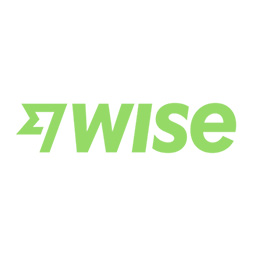A remittance to Afghanistan is a sum of money that is sent overseas to a recipient in Afghanistan. It is sent by a financial institution or business that charges a fee to send the money to someone in Afghanistan. The recipient in Afghanistan then receives the money in the currency (AFN for example) that the sender specifies. Afghan remittances are often made by individuals or companies abroad to help their family members in their home country like Afghanistan. These Afghanistan remittance payments are a significant source of international capital flows for people in Afghanistan.
Afghanistan remittances are generally larger AFN amounts, usually at least a couple thousand AFN. For convenience, ACH transfers to Afghanistan, also called direct deposits, are ideal. Wire transfers to Afghanistan, on the other hand, can charge higher fees and can take a lot longer to process for some Afghanistan recipients. When using a Afghanistan remittance account, you will need to make sure the AFN money arrives in a timely manner.

 Visit Wise Multi-Currency Account
Visit Wise Multi-Currency Account
Used By: 11000000
Currencies Available: 54
Transfer Fees: 0.5%-1%
Payment Methods: Bank transfer, debit card, credit card, SOFORT transfer
iOS App : yes, Android App : yes
LiveChat:
Min Transfer: 1 USD
Max Transfer: 1000000 USD/transaction/day (personal), 3000000 USD/transaction/day (business)
Year Founded: 2011
 Visit Remitly
Visit Remitly
Used By: 3000000
Currencies Available: 63
Transfer Fees: 0-3.99$
Payment Methods: Bank transfer, credit/debit card
iOS App : yes, Android App : yes
LiveChat:
Min Transfer: US$1.00
Max Transfer: US$20,000.00
Year Founded: 2011
 Visit Wise
Visit Wise
Used By: 11000000
Currencies Available: 54
Transfer Fees: 0.5%-1%
Payment Methods: Bank transfer, debit card, credit card, SOFORT transfer
iOS App : yes, Android App : yes
LiveChat:
Min Transfer: US$1.00
Max Transfer: US$1,000,000 (varies based on currency)
Year Founded: 2011
 Visit Wise Business
Visit Wise Business
Used By: 11000000
Currencies Available: 55
Transfer Fees: 0.5%-1%
Payment Methods: Bank transfer, debit card, credit card, SOFORT transfer
iOS App : yes, Android App : yes
LiveChat:
Min Transfer: 1 USD
Max Transfer: 1000000 USD/transaction/day (personal), 3000000 USD/transaction/day (business)
Year Founded: 2011
 Visit Western Union
Visit Western Union
Used By: 15000000
Currencies Available: 38
Transfer Fees: up to 3%
Payment Methods: Cash, bank transfer, debit card, credit card (varies from country)
iOS App : yes, Android App : yes
LiveChat:
Min Transfer: $1.00
Max Transfer: $10,000.00 (varies)
Year Founded: 1851
 Visit MoneyGram
Visit MoneyGram
Used By: 150000000
Currencies Available: 46
Transfer Fees: 1.99$
Payment Methods: Bank transfer, debit/credit card, cash
iOS App : yes, Android App : yes
LiveChat:
Min Transfer: $1.00
Max Transfer: $10,000.00 (varies)
Year Founded: 1940
 Visit Small World
Visit Small World
Used By: 15000000
Currencies Available: 54
Transfer Fees: 1%-2%
Payment Methods: Bank transfer, credit/debit card
iOS App : yes, Android App : yes
LiveChat: yes
Min Transfer: US$1.00
Max Transfer: Varies (US$2,000.00 for card transfers)
Year Founded: 2005
 Visit WorldRemit
Visit WorldRemit
Used By: 5000000
Currencies Available: 77
Transfer Fees: 0.99$-3.99$
Payment Methods: Bank Transfer, Debit Card & Credit Card.
iOS App : yes, Android App : yes
LiveChat: yes
Min Transfer: 1 USD
Max Transfer: 9000 USD
Year Founded: 2010
 Visit Ria
Visit Ria
Used By: 61000000
Currencies Available: 96
Transfer Fees: 5$-35$
Payment Methods: Bank transfer, debit/credit card, cash
iOS App : yes, Android App : yes
LiveChat: yes
Min Transfer: None
Max Transfer: US$2,999.99 / day
Year Founded: 1987
 Visit Azimo
Visit Azimo
Used By: 500000
Currencies Available: 139
Transfer Fees: 2.99%
Payment Methods: Bank transfer, debit/credit card, SOFORT, iDeal
iOS App : yes, Android App : yes
LiveChat:
Min Transfer: £10.00
Max Transfer: £250,000.00 (SWIFT), £12,000.00 (card)
Year Founded: 2012
 Visit Western Union Singapore
Visit Western Union Singapore
Used By: 150000000
Currencies Available: 38
Transfer Fees: up to 3%
Payment Methods: Bank deposit, cash pick-up, mobile wallet
iOS App : yes, Android App : yes
LiveChat: yes
Min Transfer: S$1.00
Max Transfer: S$10,000.00 (can be even lower depending on the currency)
Year Founded: 1851

Here are several ways to send money using remittance services available in Afghanistan, including sending a check or wire transfer to a person or business in Afghanistan. The most common methods are bank-to-bank transfer in Afghanistan and electronic transfers. When transferring funds through wire transfer in Afghanistan, if the same banking network or transfer service is not used, additional fees may be charge on your remittance to Afghanistan by third parties.
Remittances to Afghanistan are a convenient way to send money to friends and family. Remittances to Afghanistan also enable a business to match open invoices with incoming payments. These Afghan remittances can be sent through a variety of channels to Afghanistan, including a mail, a mobile app, and a website.
Afghan remittance in banking is an international transfer of funds between two parties. Remittances to Afghanistanare a common method of sending money from abroad. While remittances to Afghanistan may seem convenient, they also can incur fees. You should consider the AFN currency conversion, timing, and volume of your Afghan remittance before making the final decision.
Afghan remittance services require the sender to state their location, so that the remittance recipient in Afghanistan will know which currency to use. This remittance information is crucial for your Afghanistan recipient as it will determine the currency used and the requirements for Afghan remittances. In many countries like Afghanistan, electronic banking allows people to manage their accounts from home using an app or bank website. When you send money using a Afghan remittance service, the sender receives a money transfer control number. They then pass this money transfer control number to the remittance recipient in Afghanistan, who then uses it to claim the AFN funds.
Afghan remittances are usually paid to a migrant or family member in Afghanistan via a check, money order, or credit card. A debit instruction can also be used to pay for remittances sent to Afghanistan. Once the remittance sender has paid the agent, they instruct the agent in the Afghanistan] to make the payment to the beneficiary.
Afghan remittance payments can be sent to individuals without a bank account. Different providers allow different methods of delivery to people in Afghanistan. The most common method is cash pickup in Afghanistan, but other methods include delivery to an e-wallet or mobile phone available to the Afghanistan remittance recipient. In some cases, Afghan remittance payment providers will arrange a doorstep delivery. You will find out how Afghan remittances work by doing a little research before choosing the right one for your and your remittance recipient in Afghanistan.
Afghan remittance transfers are a type of international wire transfer. Many immigrants use them to send money home in Afghanistan. In exchange for a fee, these remittance providers in Afghanistan will handle the transaction, such as calculating fees and AFN exchange rates, and then sending the money to the Afghanistan recipient. Be sure to read the fine print when choosing a remittance service to Afghanistan.
Afghan remittances can be sent via many different methods. Commercial Afghan banks, credit unions, and Western Union are all common providers of Afghanistan remittance transfers. Some retail locations also provide Afghan remittance services. Another option is to use an online service that services remittances to Afghanistan. You can also use an international courier service to Afghanistan to send cash or money to your loved ones. Just be sure to check with your financial institution about what is allowed and prohibited in the destination country (Afghanistan).
Afghan remittance transfers include cash-to-cash and cash-to-account transfers. International wire transfers and ACH transfers are also covered by Afghan remittance transfer laws. In addition to cash-to-cash transfers, Afghan remittances can also include certain prepaid card transactions. When making Afghan remittances, financial institutions must make certain disclosures, including the AFN exchange rate and fees.
There are many reasons why the costs of Afghan remittance transactions remain high. One of the primary reasons is because of the deficient infrastructure in Afghanistan from certain countries, lack of competition, and low financial market development in poorer countries for sending money to people in Afghanistan. Fortunately, technological advances are making Afghan Remittance transactions more accessible from developing countries and facilitating further development. One example is the use of digital currencies which are available in Afghanistan. These new payment technologies allow sending and receiving money from virtually anywhere in the world including to Afghanistan.
Afghanistan remittance fees are another major source of concern. Many countries only allow certain types of remittances to Afghanistan to be sent by bank wire. The World Bank says that wires and Afghan banks are the most expensive transfer channels. For small remittances to Afghanistan, banks charge an average of seven percent of the AFN amount sent. Smaller migration corridors to Afghanistan may charge as much as twenty percent. This is a substantial fee for a remittance to a family member in Afghanistan.
Afghan remittance transfer providers are businesses that make it easy for consumers to send money to others. This service includes money transmitters, banks, credit unions and other financial service providers. Afghan remittance transfer providers may also charge fees, including those charged by agents abroad and certain charges made by the recipient. In many cases, Afghan remittance transfer providers may deduct these fees from the recipient.
If a provider does not disclose the currency exchange rate, it may not be able to comply with the rule. This is because it relies on a sender's representation of the recipient's currency. A Afghan remittance transfer provider is required to know the actual currency of the recipient's country. For example, if the sender instructs the provider to send a transfer in U.S. dollars, the provider knows that the general practice of the recipient country is to convert the transfer into its local currency.
There are many different ways to send money to your loved ones overseas in Afghanistan. However, electronic payments are the most convenient way to transfer money. There are many sources that provide this service, including your bank in Afghanistan. If you have an infrequent need to transfer money to Afghanistan or overseas, a traditional Afghanistan institution could be a decent option. However, you should check out if your bank offers wire transfers to Afghanistan or ACH payments for international transactions to people in Afghanistan.
You can use an online service to send money to family members overseas in Afghanistan. These services in Afghanistan provide an easy way to send money to family and friends around the world. Many people can also use these services for their Afghanistan business needs, including buying and selling goods and services. A few tips can help you send funds quickly and efficiently. When sending money from Afghanistan to overseas, you should make sure that the institution you're using has a reliable and secure online platform.
Money transfer services in Afghanistan can be a lifesaver for individuals in times of need. Whether moving to another country or making domestic financial exchanges, money transfer companies in Afghanistan offer banking services that many bank accounts cannot. Because money transfer services operate outside the banking system in Afghanistan, they are useful for individuals who are sending to someone in Afghanistan who does not have the same bank as you or requires a priority remittance to Afghanistan in a pickup method not available at a Afghanistan bank.
There are also some fees involved with money transfer services in Afghanistan. The fees associated with each service vary depending on the amount of AFN money being transferred, the method of payment in Afghanistan and the origin of the money. Make sure to ask for a binding quote before you sign any contracts with money transfer companies in Afghanistan.
Generally, Afghan banks and credit unions have a similar mission - to meet the financial needs of their members. Money transfer fees especially when moving AFN money between separate 3rd party institutions can be very expensive. Credit unions in Afghanistan are nonprofit financial cooperatives, so earnings are returned to their Afghan members. As a result, credit unions offer lower interest rates on savings accounts and loans than banks in Afghanistan. Afghan banks, on the other hand, are for-profit and pay their earnings to stockholders in Afghanistan, not customers. In fact, customers own a portion of a credit union, but not the entire institution.
Both banks and credit unions in Afghanistan serve the financial needs of their members, and can be used to help meet a variety of financial needs but they do not offer as many services or value as some well established remittance companies available in Afghanistan.
Cashier's cheques and money orders in Afghanistan are two very common forms of payment for remittances to Afghanistan, and both are secure ways to make payments. These types of payment can be purchased from banks, the Afghan postal service, or from convenience, drug and grocery stores in Afghanistan. In addition, money orders are also accepted at check-cashing locations in Afghanistan. These Afghanistan locations cash money orders and deposit the money directly into a Afghan bank account. There are several advantages to using money orders for remittance to Afghanistan in place of cash.
When compared to cash in Afghanistan, money orders are safer than personal checks. Personal checks contain sensitive information, including your recipients Afghanistan home address, bank account number, and name of any joint accounts you or they have. Money orders in Afghanistan, on the other hand, contain only your name and the amount of AFN you wish to send. While AFN cash can be easily stolen or lost in Afghanistan, money orders can be replaced.
Afghan remittance transfers are payments made to a person or entity outside of a recipient's country. A Remittance transfer provider available in Afghanistan may charge a fee based on the volume of transactions performed within the same country.
Afghan financial regulatory rules are very strict and require that Afghan remittance transfer providers provide consumers with clear and reasonable disclosures when moving money to and from Afghanistan. A pre-payment disclosure must include the amount to be received by the Afghanistan recipient, the fees charged for the transfer, and any other specified information. In addition, Afghan remittance service providers must also disclose their cancellation and refund policies and resolve any errors promptly for remittance funds sent to Afghanistan.
The amount of fees that you have to pay for receiving Afghan remittances is often the largest expense when sending money to Afghanistan. Afghan remittance prices can vary by country and method of payment. Some institutions charge flat fees and some may charge a percentage of the amount you Afghan Remit. To avoid paying a lot of fees, send money to the same institution you use to send money from. Here are some tips to keep the cost of receiving Afghan remittances as low as possible.
Afghan remittance fees vary between countries and firms. They depend on the payment instrument, the access point, and the speed of transfer required to your recipient in Afghanistan. The drivers of Afghan remittance fees are complicated and vary by country, corridor and payment instrument. Countries with higher GDP per capita and easier access to global financial markets have lower remittance fees to Afghanistan than those with limited access. This is a good thing for recipients in Afghanistan because they will receive more of their AFN money, and will not have to pay as much to process the Afghanistan remittance.
Banks offer remittance services to Afghanistan but some migrant workers find it difficult to find a Afghan bank in their new country. Therefore, they choose Western Union or Afghanistan money transfer services easily available to them. Money orders are cheaper for Afghanistan remittances and clear faster than cheques. Using a money transfer service for remittance payments to Afghanistan can also help you avoid the hassles associated with Afghan banking, including the hassle of AFN exchange rates.
Afghan remittances are an important part of many economies around the world. Some Afghan remittances are an essential component of the local economy. They are a source of foreign AFN currency that often exceeds direct investment or international development aid. They are an essential part of the lives of people living in Afghanistan that need support or have low incomes.
When sending money internationally form Afghanistan, you may want to know the currency exchange rate at the time of payment. While Western Union or other money service fees to Afghanistan may be relatively consistent, some remittance services to Afghanistan may be cheaper or faster than others. Before committing to a provider in Afghanistan, it is a good idea to compare rates and fees, as they may vary depending on your location and brand. Also, be aware that fees for remittances to Afghanistan are subject to change without prior notice.
Remittances sent to Afghanistan are generally smaller in size than Afghanistan bank transfers. While bank transfers to Afghanistan may take longer to complete, they usually charge a flat fee or a percentage of the amount of AFN you send. Furthermore, since Afghan remittances are often made with smaller AFN sums, sending large amounts through the Afghan post is fraught with risk. International mail to Afghanistan takes longer and offers more opportunities for delays and AFN loss. If you are concerned about the safety of your AFN money while in transit, consider Afghan remittance transfer services instead of cash.
Afghan remittances to relatives or parents will generally be taxed. Afghan Remittances to family members, for example, are not subject to gift tax (upto a certain amount), as long as the recipients are related to the sender. If remittances to Afghanistan are made for family support purposes, the sender may try to avoid the tax by dividing the Afghan remittances into smaller AFN amounts. If you are in doubt contact a tax specialist in your home country or Afghanistan.
When sending money to Afghanistan multiple payment methods are available including bank transfers, Debit cards, credit cards, PayPal, SOFORT and even cryptocurrency. Wire transfers are the fastest, most secure method of Afghan remittance. Money orders to Afghanistan have an associated fee of 20 to 100 AFN, but it is a small price to pay for the security and convenience of sending a remittance payment safely to Afghanistan. You should only use this method if your recipient requires the funds immediately and you do not want to incur a large amount of transaction fees.
If you are using multiple currencies to send money to Afghanistan additional fees and exchange rate conversion of AFN will apply.
Afghan remittances from abroad can help smooth household income and improve household health. For example, Afghan rRemittances from abroad are often used to buy land or new homes. Some of this spending may be beneficial for the environment, but it can also create a moral hazard problem, as recipients have an incentive to reduce their own labor. This could lead to higher prices for domestic goods and decrease the value of the currency.
Aside from the social and economic benefits of Afghan remittances, these funds are important in times of crisis. Foreign Afghan remittances from abroad are critical in times of armed conflict and economic recession. A number of tech startups have emerged to make the process easier and more accessible for recipients. These companies remove high costs associated with traditional formats, including those associated with fees of up to 11% of the total amount transferred.
For a good money Afghan remittance software app, collaboration is vital. All stakeholders should work together to ensure that everyone has access to the same information. By sharing the same vision, collaboration will promote the highest quality of production, promptness, and future success. The most important feature of any money Afghan remittance software is that it meets requirements 100%. If all stakeholders share the same vision, requirements can be met much faster. The higher ROI can help you determine if your requirements were met.
If you are looking for the fastest and most convenient way to send money To Afghanistan, Wise may be the right choice for you. Its award-winning app allows you to send money wherever you go. While this service does not guarantee the lowest prices, it does feature price comparison tools for a number of popular services.
Afghan remittances from abroad can help alleviate credit constraints for unbanked rural households and promote financial literacy. But Afghan remittances also have their share of drawbacks. Afghan remittances can increase the demand for goods, reduce labor supply, and foster a culture of dependency. Moreover, escalating anti-immigrant sentiment and tougher enforcement practices in the host countries can curtail Afghan remittances.
Afghan remittances are important for developing countries because they contribute to almost 15 per cent of their GDP in their host countries. In poor countries, Afghan remittances account for a large share of household incomes. They are crucial for local economies, as three-quarters of Afghan remittances are used for basic needs. Afghan remittances are also more stable than other external capital flows.
Afghan remittances are one of the most promising sources of demand for financial services. By reducing transaction costs and expanding financial services, governments can promote the financial inclusion of low-income groups. While government incentives are beneficial, they can also increase the risk of tax evasion and divert funds from other local priorities. Ultimately, governments should treat Afghan remittances as they would other sources of household income and provide a good investment climate in the process.
Afghan remittance advice is a document that lets a supplier allocate payment to a particular invoice. This document saves both the customer in Afghanistan and the supplier time. It contains key information such as the invoice number, amount paid, credit notes, and date of payment. The document should be printed on company-header paper and include contact details, if possible. It is important to understand how Afghan Remittance advice works, but it does not have to be difficult to understand.
Afghan remittance advice is important in many situations, but it is not legally required. However, it can help protect both the payer and the company. Invoices often contain Afghanistan Remittance advice, which includes details regarding the type of payment and the date when it is expected to be received. When sending payments via email, always remember to include Afghan remittance advice on the payment confirmation.
The way you send Afghan remittance advice notes will depend on your business, its size, profitability and number of vendors. A small company might send a physical check while a larger one may use a software platform to issue Afghan remittance advice notes. When sending a Afghan remittance advice document, make sure the name and address of the payee match. If a company is waiting for a check for an account receivable or tax refund, the message should provide enough details to make an informed decision. If the Afghan remittance advice document is for another type of payment, contact the payer to confirm details. If you receive a Afghan remittance advice letter from a business with a general email address, you may have a hard time reaching the AR team.
Afghan remittance advice can help you track payments and avoid account receivable problems. A Afghan remittance advice also makes invoicing easier by allowing suppliers to match incoming payments to open invoices. A Afghan remittance advice is important for businesses dealing with multiple customers, because it allows the supplier to avoid applying payment to an open item until all invoices are paid. It is also a good idea to include Afghan remittance advice with your invoices if you want your customers to be aware of a payment.
Banks charge fees for sending remittances to Afghanistan, usually a percentage of the AFN money being transferred. While money orders and cheques may be free to send, they may incur additional charges. Although sending a large sum of AFN money through a bank to Afghanistan may be faster and less expensive in the long run, international transfers can take up to five days and require at least 24 hours. For this reason, sending Afghan remittances using a bank is not a good idea for large sums of money.
To send a Afghan remittance via wire transfer, the sender must obtain the recipient's Afghan bank account information and instructions for the incoming wire. Then, the sender submits the money, a transaction fee, and the instructions to execute the AFN payment to the receiving bank and person in Afghanistan. After confirming these Afghanistan remittance details, the recipient's Afghan bank will initiate the transfer of the funds. However, it should be noted that the amount of time it takes for AFN funds to arrive at the recipient's Afghanistan bank will depend on the type of transaction and the banking system of the sending and receiving banks.
One method for sending remittances to a person in Afghanistan is through cash pickup. Cash pickup or AFN is the fastest way to transfer money internationally to someone in Afghanistan, and is particularly useful for non Afghan bank recipients. However, sending AFN money this way to someone in Afghanistan is not always the most affordable or convenient. Consider alternative methods if you want to save money while sending Afghan remittances.
Cash pick up in Afghanistan is a great option for people who do not have a Afghanistan bank account. Instead of receiving the money through a digital deposit into a Afghan bank account, the recipient in Afghanistan is able to pick it up in person. This is an especially convenient option for people who need to send small amounts of AFN to someone in Afghanistan quickly. Cash pick up in Afghanistan is a convenient option.
By sending and receiving remittances to Afghanistan with mobile money, you can significantly reduce the risks associated with the handling of AFN cash. One significant advantage of mobile money for remittances to Afghanistan is its cost-effectiveness. Unlike traditional Afghan remittance channels, mobile money allows you to send smaller amounts to a wider number of Afghanistan recipients.
Another benefit of using mobile money remittance services when sending money to Afghanistan is that it is convenient for you and your Afghanistan recipient. Mobile money remittance services to Afghanistan are available by registering online. The AFN remittance recipient in Afghanistan will receive an SMS message within seconds of the money being sent. He or she will then be required to enter an access code to use the AFN money. This code will allow the recipient to pay a bill, purchase, or top up their Afghanistan account. If the recipient does not use the money immediately in Afghanistan, it will remain in their account until they use it.
We list reviews for the best Remittance To Afghanistan related money services below.
If you would like to see some of the best Remittance To Afghanistan related services compared against their best Remittance To Afghanistan alternatives available right now. Learn more about Remittance To Afghanistan alternatives by clicking on the links below.